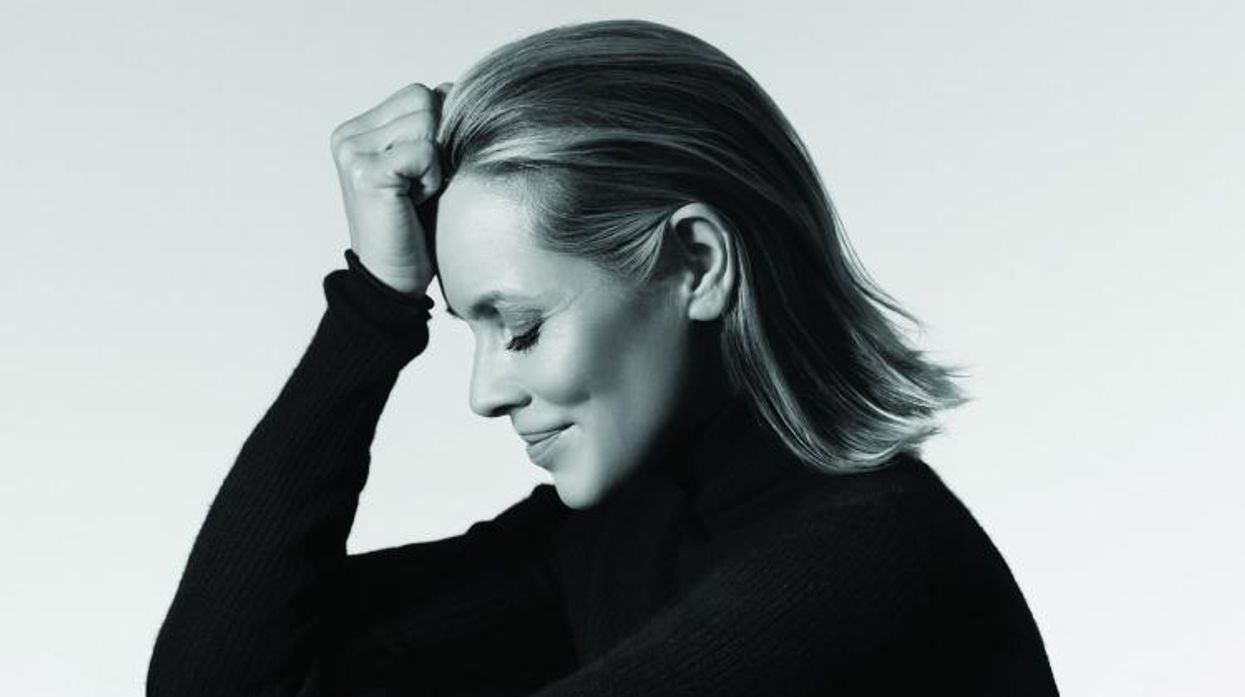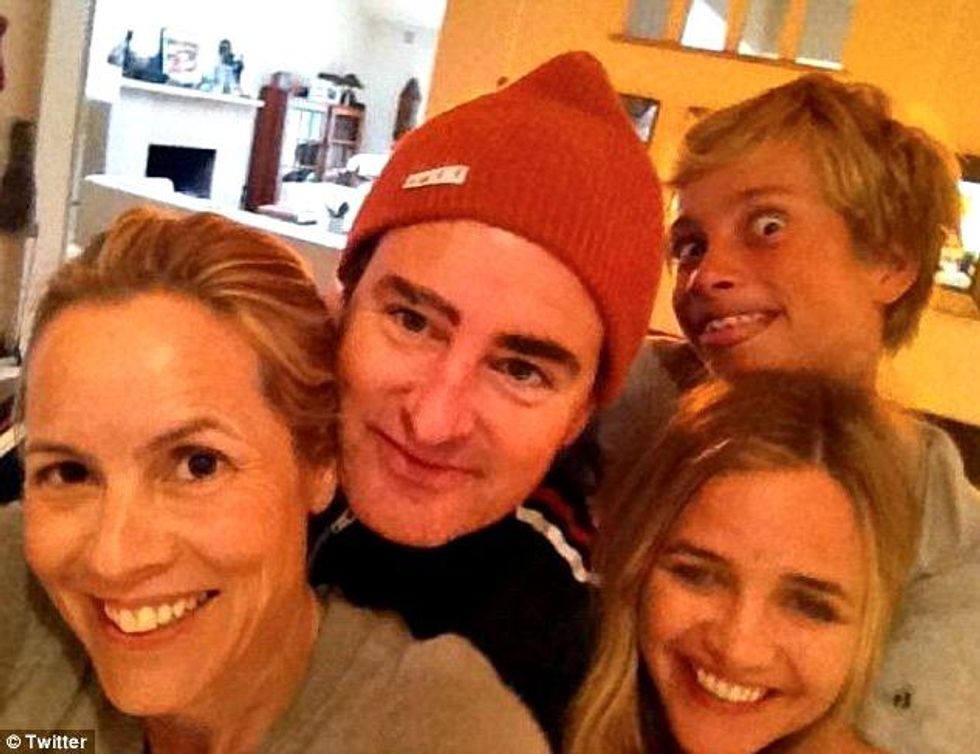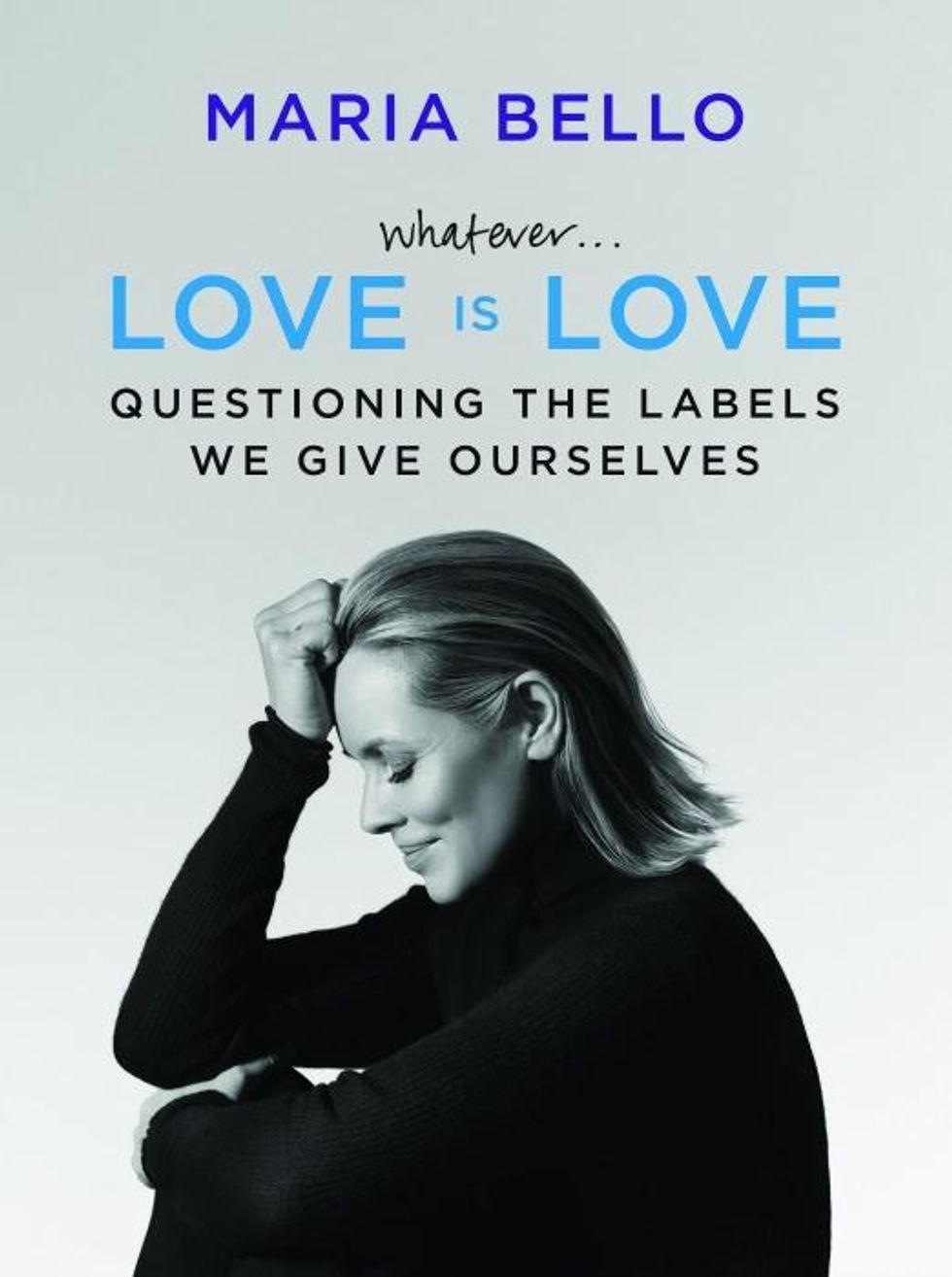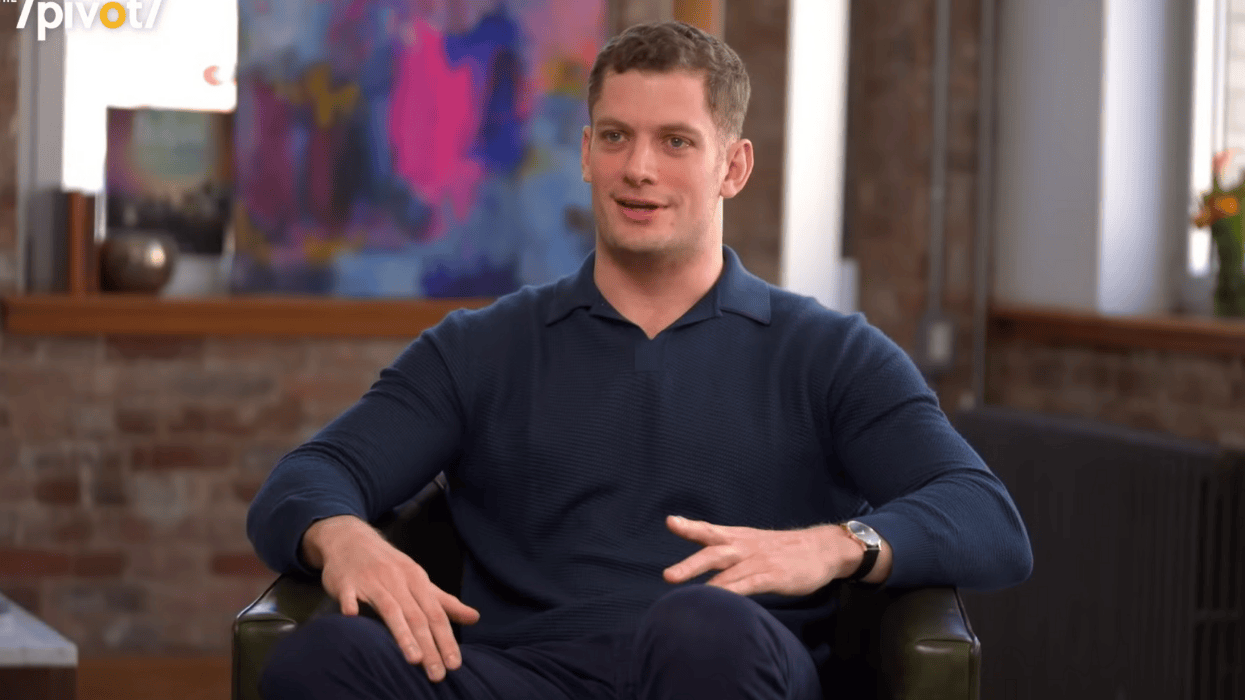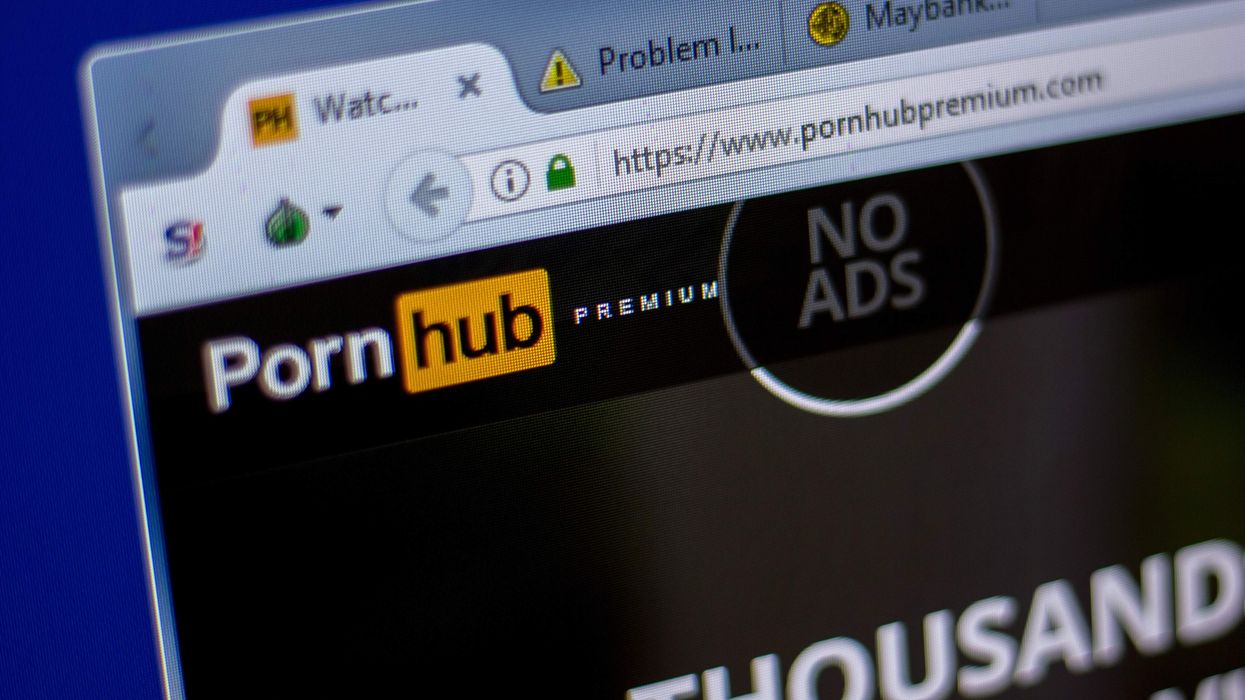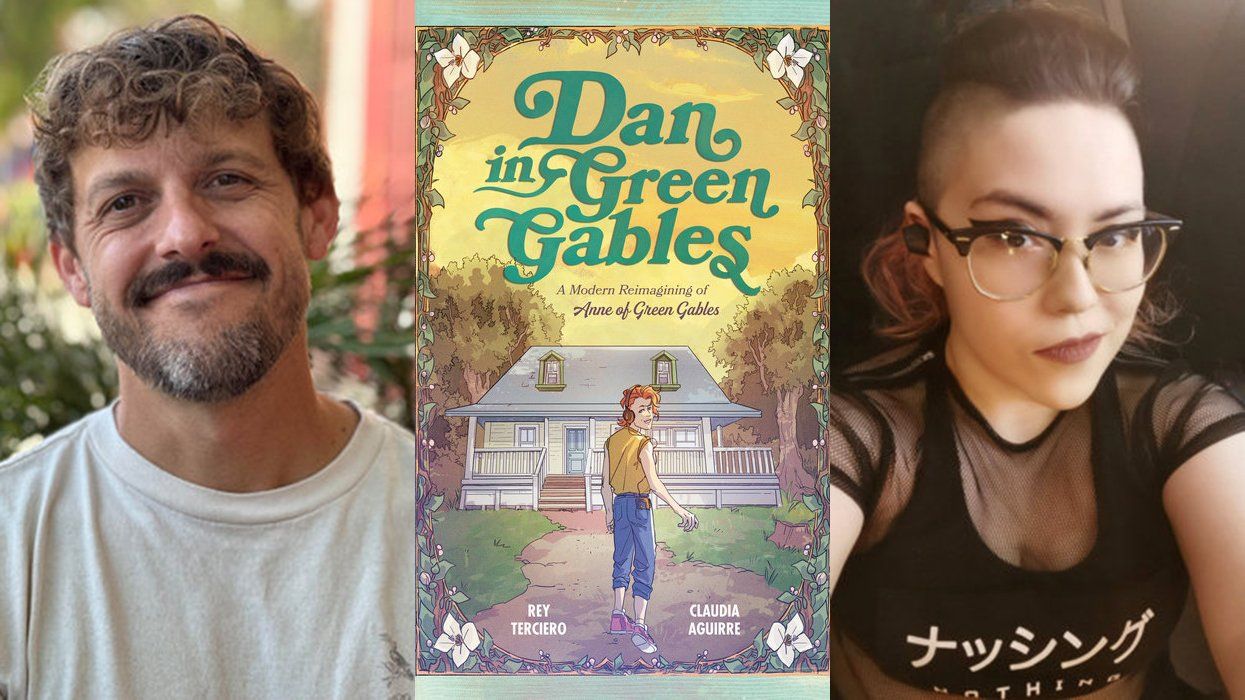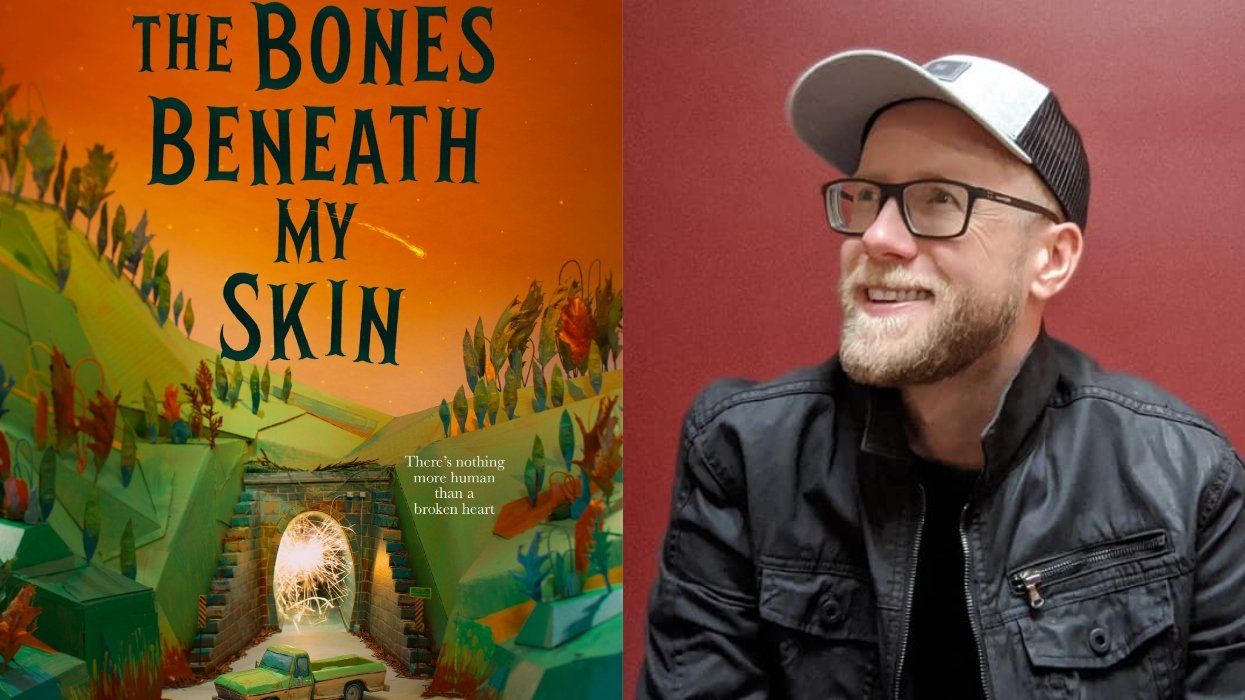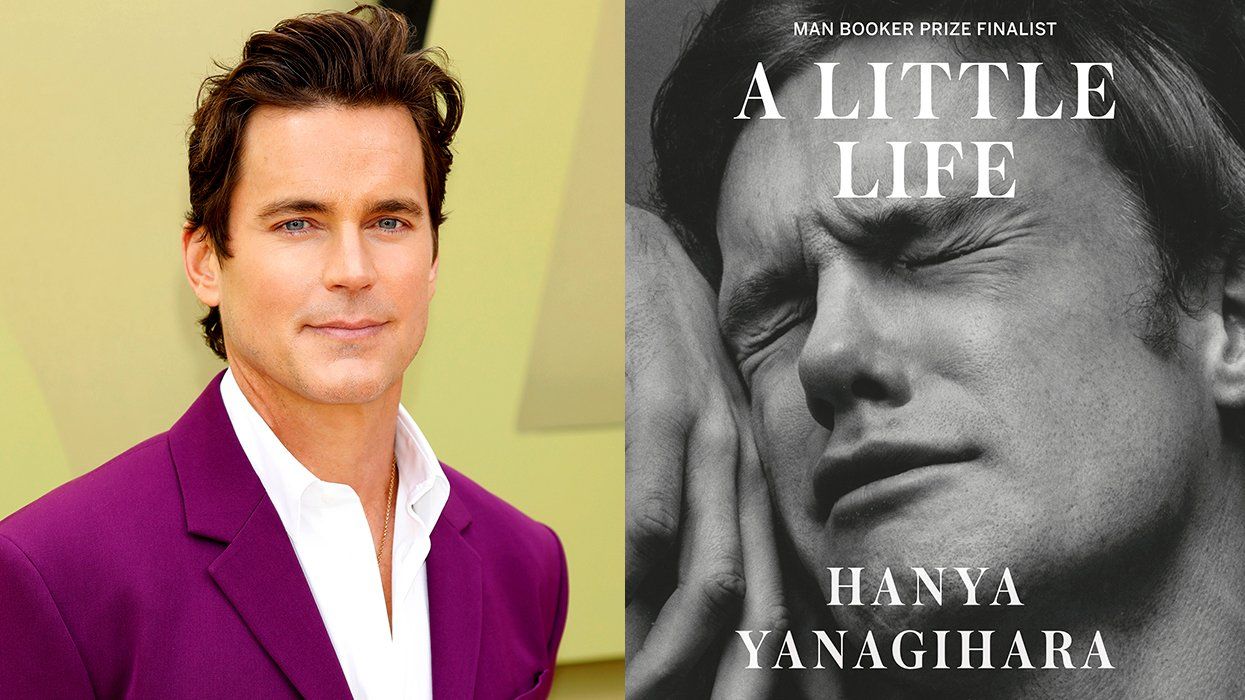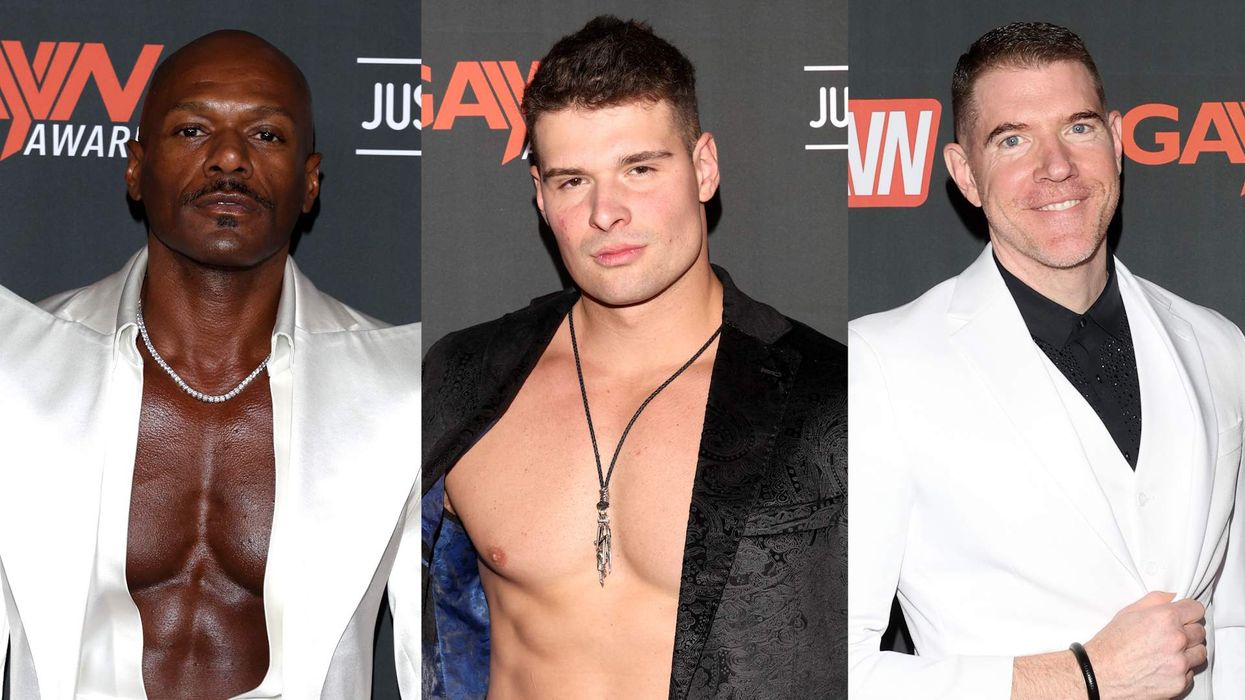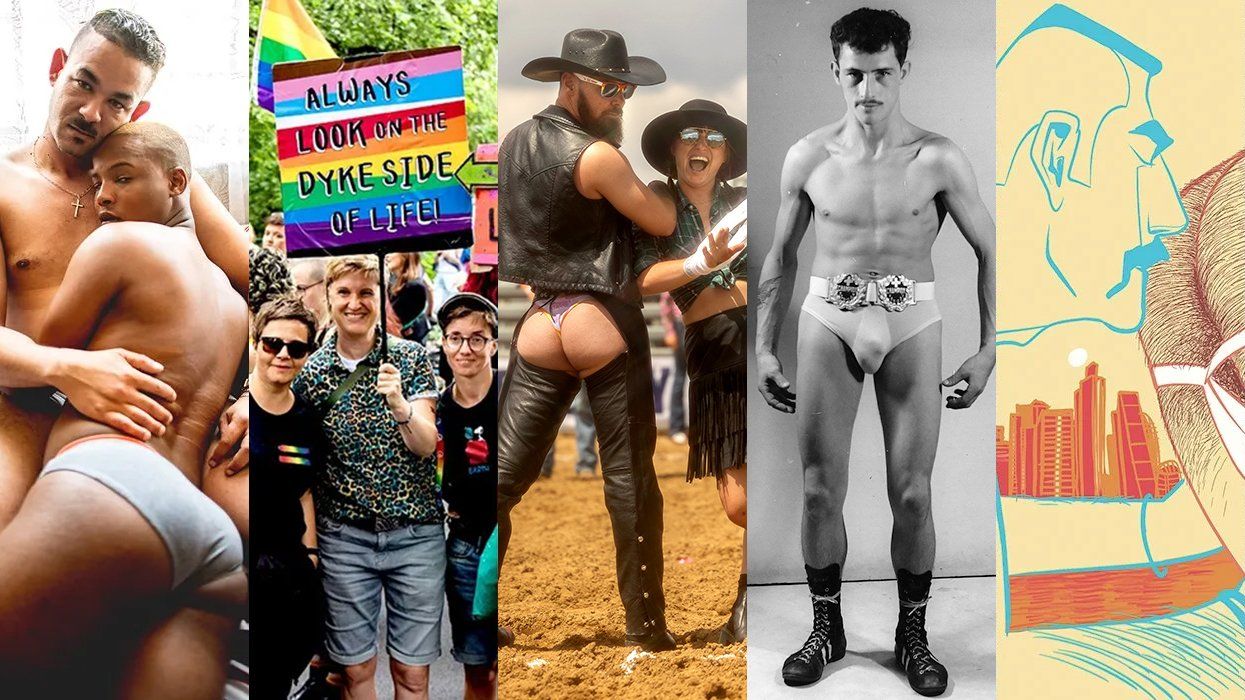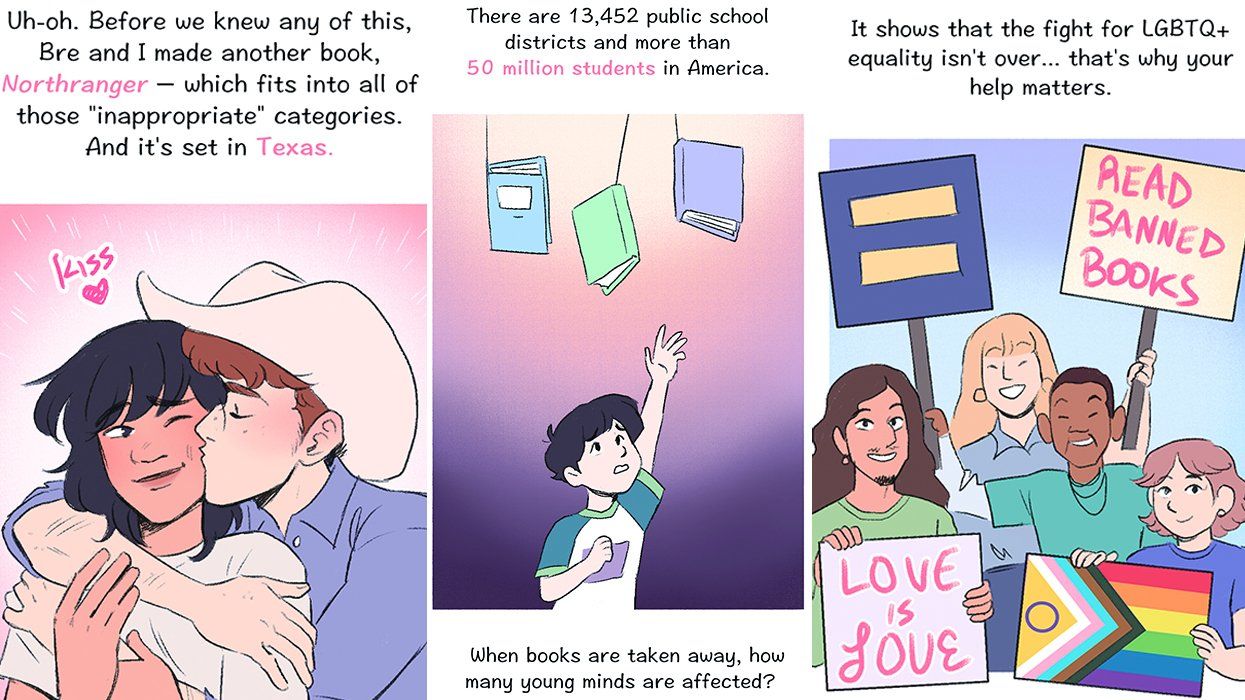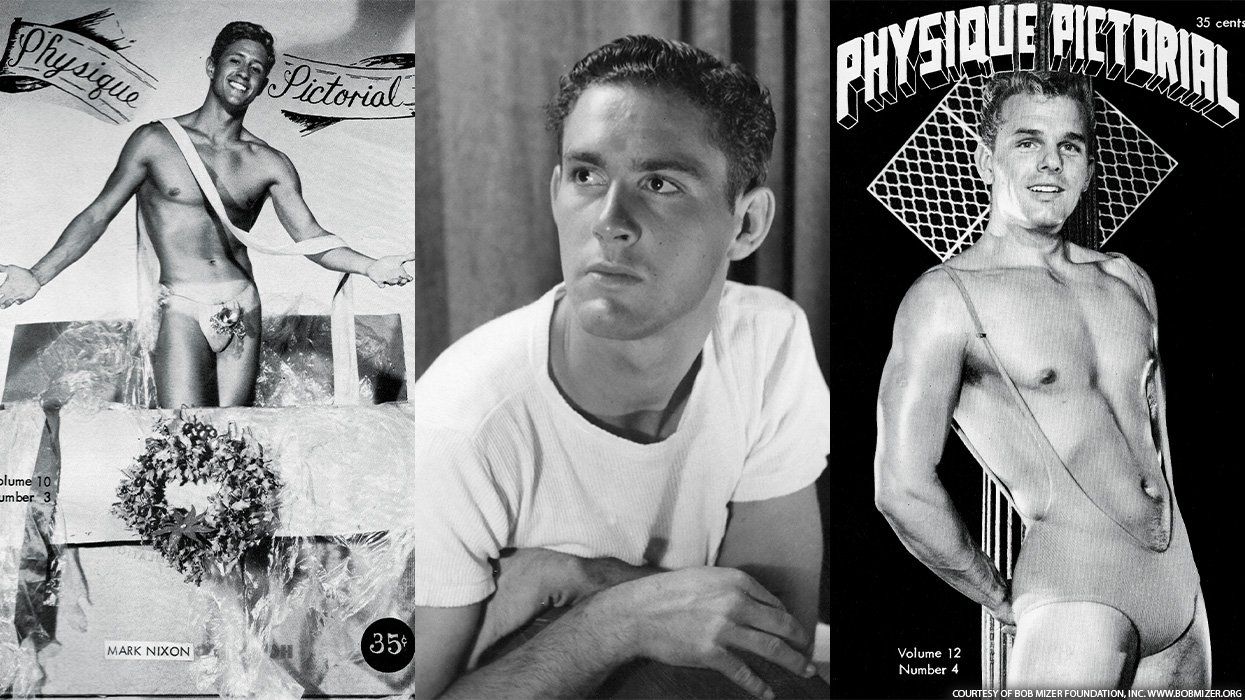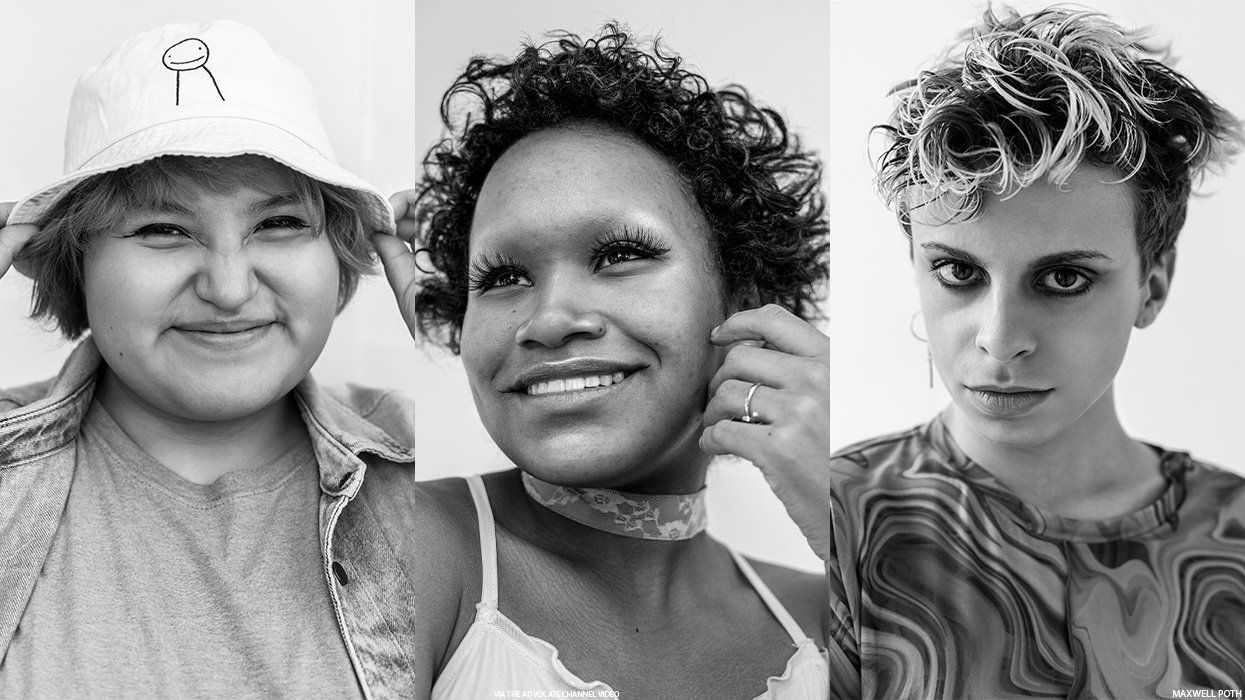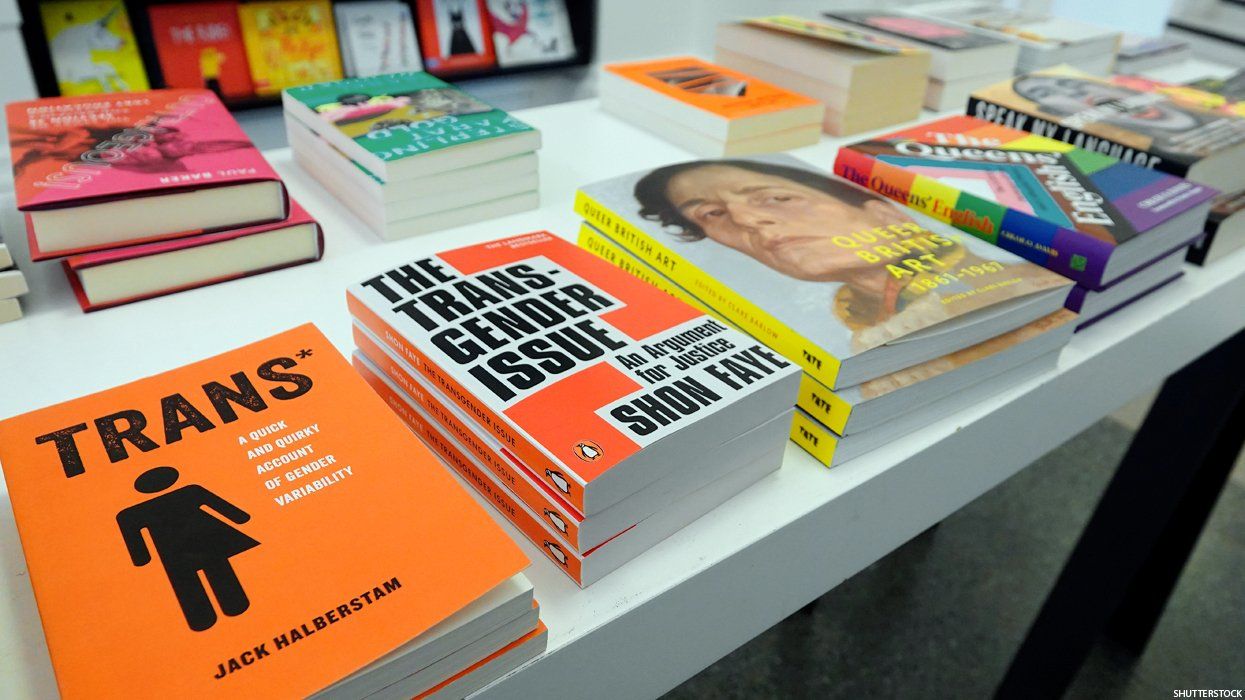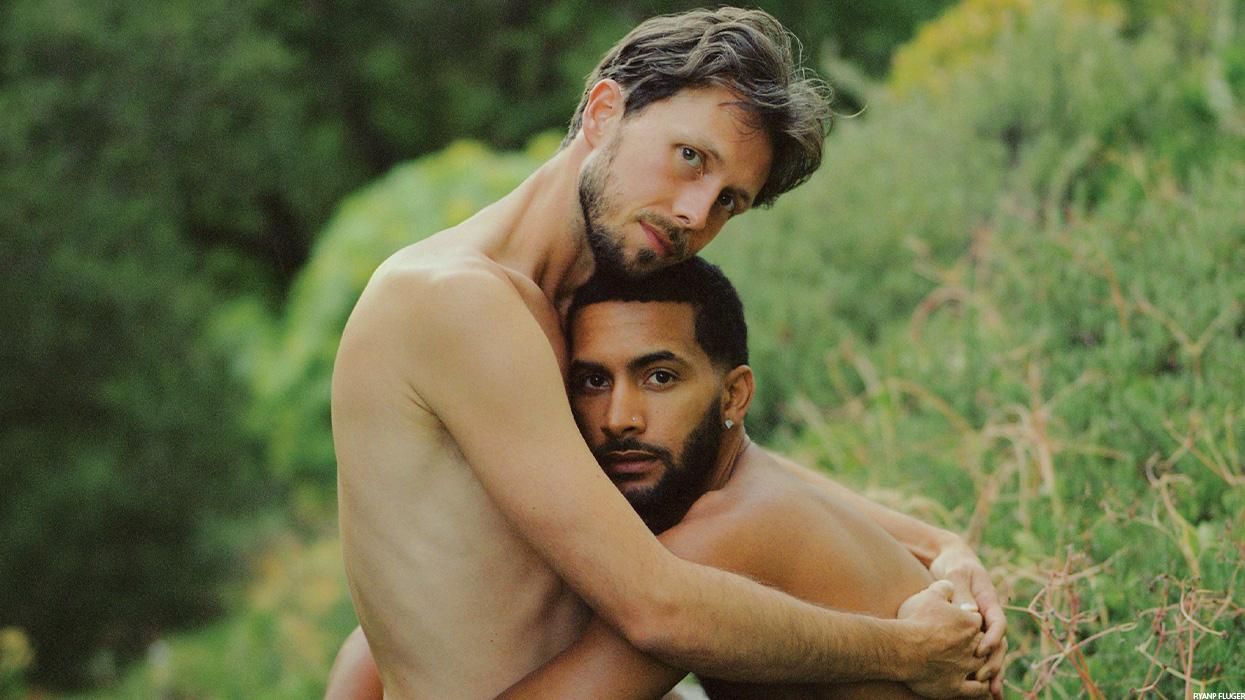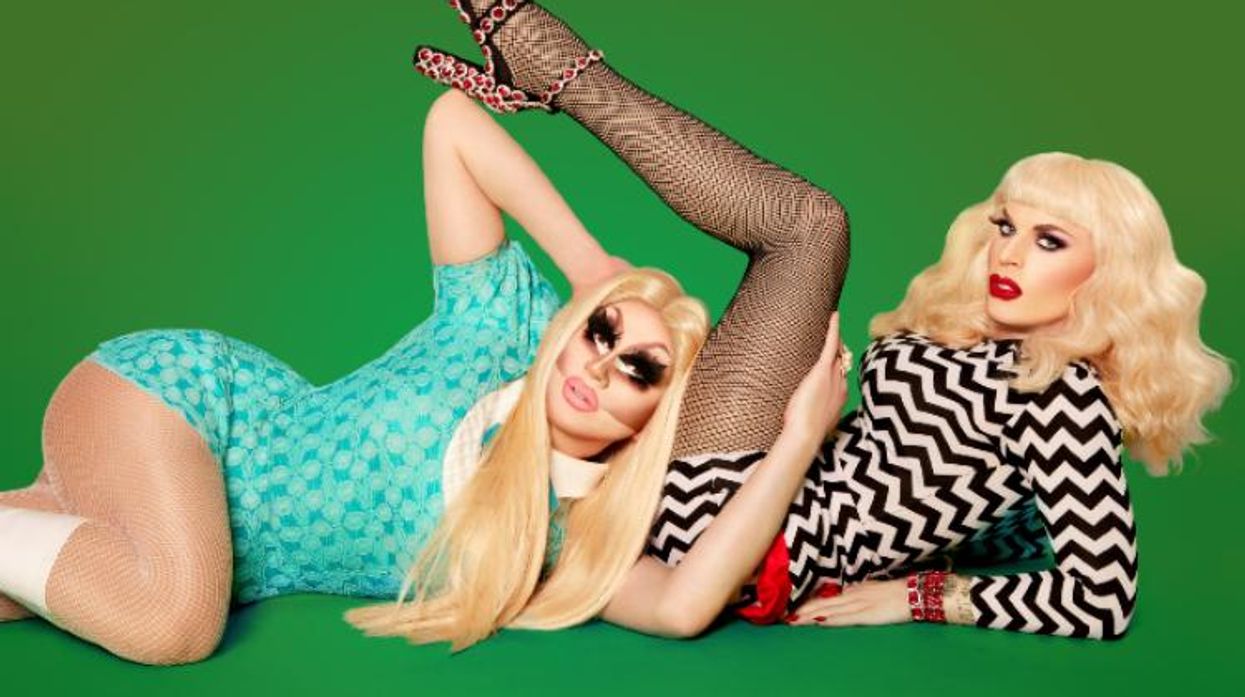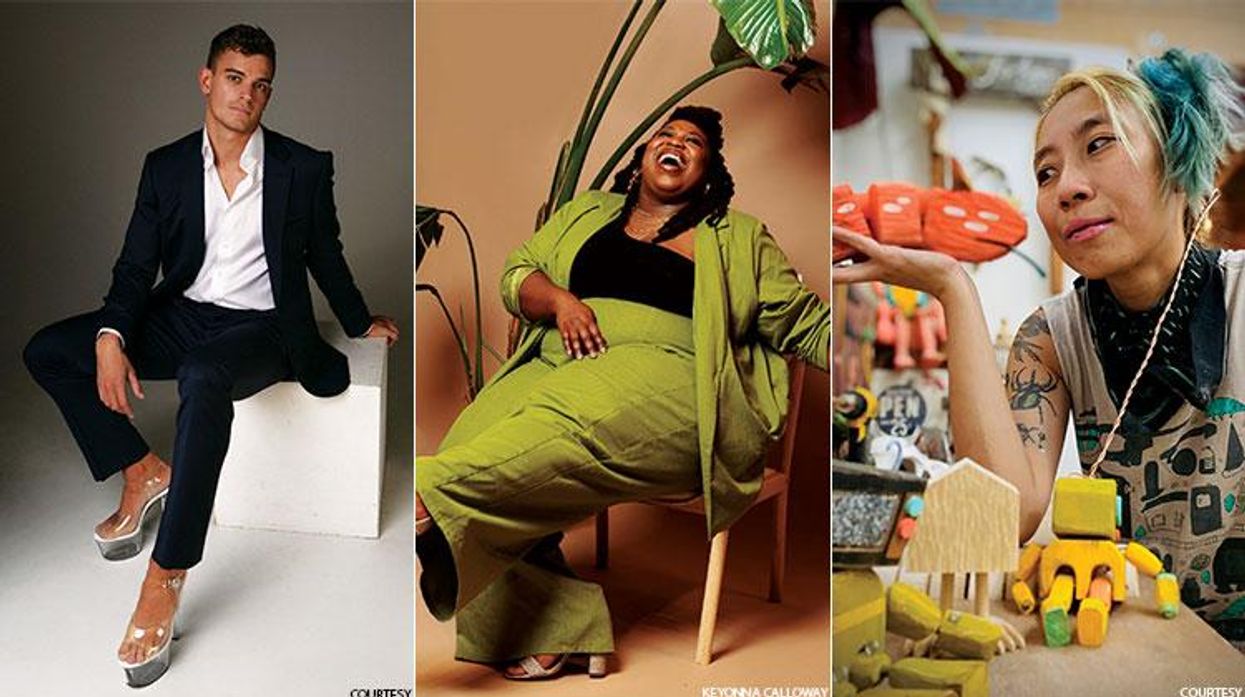Illustration by Jonny Ruzzo
"I can't tell you how many people have come up to me and said, 'I'm a 'whatever' too,' " says Maria Bello. "Even men who are married to men, or women who are married to women, identify as whatevers." Bello is referring to the feedback she received after writing the widely read 2013 New York Times essay "Coming Out as a Modern Family," in which she outlined the working union of her; Dan, her ex-partner and the father of her son, Jackson; and Clare, her longtime best friend and current girlfriend. Bello's new memoir, Whatever...Love Is Love, is the essay's thoughtful expansion. The title is a direct quote from Jackson--his response, two years ago, when Bello first told him about her relationship with Clare, and it's what inspired her preferred label in regard to sexual orientation: a "whatever."
As Bello observes, Jackson is now a "young adult" (and a product of a progressive generation), but his worldview is a testament to the shrewdness of children not yet exposed to wider social values. And it's telling that Bello--who, at 48, has been both a Hollywood sex symbol in flicks like Coyote Ugly and a revered dramatic actress in films like A History of Violence--expressed anxiety to Jackson about facing the public as a non-heterosexual, while Jackson offered his mom a profound, yet markedly simple, life philosophy. Bello has carried baggage that Jackson hasn't: the frequently small-minded, make-or-break demands of a pitiless industry, and nearly five decades of living in a world that, until recently, has seen LGBT equality proceed at a glacial pace. It took a greater fear for Bello to embrace her son's perspective. She was in a hospital, fighting a nasty parasite she'd picked up while doing relief work in Haiti, when she told Jackson about Clare. Suddenly, other people's opinions on who she was sleeping with didn't seem so important.
"Jackson woke me up, literally and metaphorically, with his statement," Bello writes in her book. "Our conversation opened up a door that not only led me to be brave enough to admit my truth to him, but also proclaim it to others in a very public way."
And it inspired Bello to take inventory of her past, which wasn't so hard, considering she'd been keeping journals since she was a kid ("I have 12 huge bins of them in my room right now," she says). Whatever...Love Is Love is a chronicle of that inventory, and a new journal in and of itself, with Bello retracing her steps in chapters devoted to big, personally targeted questions. The first is, "Am I a Partner?" which was probably the trickiest as she let her new life as a "whatever" sink in. Bello has known Clare for roughly five years, and as she looks back at pictures, she sees that they were always "like two little kittens, beaming and smiling," even before they were more than friends. But Bello has also been in love with men, and had strong sexual attractions to them, too, even if some of those connections verged on the delusional (she admits to a long-standing Cinderella complex, always convinced she'd found her prince--"the one"). Now that she's devoted to a woman, what does that mean for her past? Has she officially crossed over into lesbianism? And must her role as a partner now be limited to Clare?
Bello's Modern Family | Photo via Twitter
Such questions may seem easily answered, but they're in fact quite loaded, and Bello was pleased to find that, when it comes to "the labels we give ourselves" (to quote her book's subtitle), she's hardly the only one in flux. For the fans and queer spouses who vocally identified with Bello, being a whatever could mean they have ex-partners--like Dan--who are still very much in their lives, or they're still attracted to both genders, or any variation in between. For Bello, it seems to mean joining the queer community in the precise, personal, pick-and-choose way she sees fit. It means holding on to her deeply Catholic Philadelphia roots while disagreeing with many of the church's teachings. It means being as uncloseted about the bipolar disorder she inherited from her father as she is about the fact that she's sleeping with Clare (in the chapter "Am I Damaged?" Bello is remarkably candid about the times her illness nearly drove her to suicide). It also means throwing her hat in the ring as an activist and advocate without adhering to any cliquey, intra-community expectations, which have clearly left Bello a little burned.
"Don't put me in the club with people who are assholes," she says. "I don't care who they're fucking, but I don't want to be in that club. You know what our community is to me? Revolutionaries--people with compassion. That's what I respond to the most--the trailblazing side of it, which has influenced trailblazers for all sorts of human rights. I know from working with women's groups and environmentalists that they've also gained their own courage from LGBT communities."
She may not have always known she was a whatever (despite her book's frank recounting of possible clues, like the fact that her first orgasm wasn't from a man or a woman but a well-utilized pillow--"was I a pillower?" she quips), but Bello has long been drawn to the queer community--actively, subconsciously, serendipitously. In the early '90s, she lived on Christopher Street in New York's West Village, and it was there--in July 1992, sitting on a wall overlooking the Hudson with a boy she was dating--that Bello discovered the body of trans AIDS activist Marsha P. Johnson floating in the river. She didn't know Johnson, but she surely knew of her, familiar with the many posters of her pasted around the Village after her death, as friends and family sought justice when police dismissed her death as a suicide. According to Bello's book, Johnson's case was only just reopened in 2012, and the new consensus seems to be that she was bashed and murdered, as her loved ones suspected. The case infuriates and invigorates Bello, who's adopted Johnson as her new hero and is planning to make a movie about her life.
"I don't want to do a film on her life; I am going to do a film on her life," Bello says. "Somehow I am destined to do something for her, since I happened to have found her. I just have to tell this story about this tremendous woman, who I saw every day walking down the streets of the West Village."
In the chapter "Am I LGBT or W?" Bello writes extensively about Johnson and the letters the queer community uses to acknowledge its many tribes. She ponderously adds "W" for "whatever." She considers the "P" in the name Marsha P. Johnson. "When people asked her what the P stood for, she said it meant, 'Pay It No Mind,' " Bello writes. "To me, she was proclaiming herself a 'whatever.' "
That Bello has vocally and visibly joined the queer community is undoubtedly a good thing, and while labels have a way of boxing us in, it's encouraging that she's chosen a label for herself, considering that so many half-closeted celebrities forgo the opportunity to call themselves what they are. That said, the label Bello has chosen is the verbal equivalent of a shrug, which might imply that she's only taking a half step into being a queer woman. And when that's considered alongside a book composed entirely of questions, one is inclined to ask, Is Bello noncommittal? She laughs at the notion.
"I'm so glad you asked that," she says. "Am I noncommittal? That's certainly something for me to think about, but as you will see in certain chapters, I'm very definitive. I'm definitely a feminist. I call myself a Catholic even though I don't believe in everything. And I'm a whatever, but I'm proud to say that I'm gay, bi, lesbian, whatever you want. I'll take it all."
There's verve in Bello's voice--youthful fire. And given that it's a fire partly sparked by her preteen son, there's a joke in here somewhere for conservatives who can't wrap their heads around queerness--something like, "It's so basic, even a child can understand it."
For the rest of us, Bello and Jackson's "whatever" philosophy may just be a reminder that it's OK to be more relaxed when it comes to love and identity. Bello's book, and by extension her journey, are contradictory. There's assertiveness pressed up against doubt. There are countless questions that sometimes go unanswered. Her formula isn't perfect. But that's the point.
Whatever...Love Is Love is available now.


